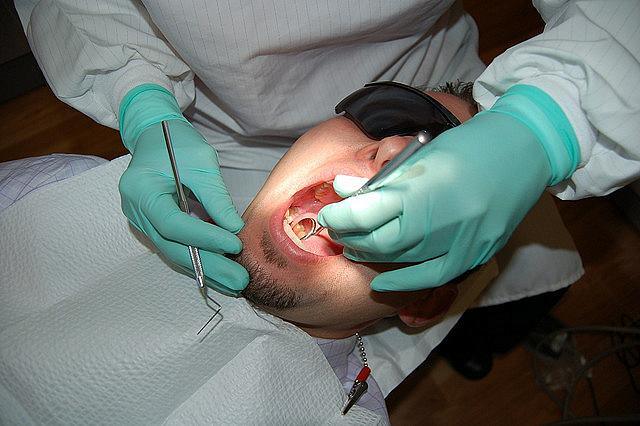Slap: Patients Post Small Victories in Consumer Gag Order Fight

 Antidote wrote in June about a great piece that Timothy B. Lee wrote for Ars Technica about his dentist's attempt to get him to sign away his right to comment about his care. Lee found out that a company called Medical Justice was selling itself to dental and physician offices as sort of an all-purpose legal offense and defense operation, and one of its key products was the very form Lee was asked to sign. Then Lee took the next step and, ingeniously, asked Yelp to see if it could find out how many positive reviews could be traced to IP addresses associated with Medical Justice. After Yelp performed the review, Medical Justice got some very bad news:
Antidote wrote in June about a great piece that Timothy B. Lee wrote for Ars Technica about his dentist's attempt to get him to sign away his right to comment about his care. Lee found out that a company called Medical Justice was selling itself to dental and physician offices as sort of an all-purpose legal offense and defense operation, and one of its key products was the very form Lee was asked to sign. Then Lee took the next step and, ingeniously, asked Yelp to see if it could find out how many positive reviews could be traced to IP addresses associated with Medical Justice. After Yelp performed the review, Medical Justice got some very bad news:
Yelp spokeswoman Stephanie Ichinose told Ars that reviews originating from Medical Justice IP addresses had been removed for violating the Yelp terms of service, which state that ‘you may not impersonate someone else, create or use an account for anyone other than yourself [or] provide an email address other than your own.' She also touted Yelp's review filtering system, which she said had automatically detected and blocked many of the Medical Justice submissions before the manual review was conducted.
A few months later, a patient with the same last name but no relation, Robert Lee, went to his dentist's office and signed a Medical Justice form. He had a bad experience with how the dentist, Stacy Makhnevich, billed him and wrote a review on Yelp about it. Then the dentist started sending him $100-a-day fines for violating the contract and threatened to sue him. Lee contacted Ars Technica, where he saw the piece the other Lee had written. He also hired an attorney who went on the counter-offensive and sued the dentist.
The attorney, Paul Alan Levy at Public Citizen, wrote:
In the form, Makhnevich promises not to evade HIPAA's patient privacy protection in return for patients' commitment not to disparage her, not to post any comments about her publicly; if the patient writes anything about the dentist, the patient assigns the copyright in those comments to Makhnevich. Relying on the form, Makhnevich sent one of her patients invoices purporting to bill him a daily $100 fine for having posted comments about her on Internet review web sites. The copyright assignment aspect of the agreement is especially dastardly. It is intended to enable the dentist to send a DMCA (Digital Millennium Copyright Act) takedown notice to the host of any web site where the criticism is posted.
Because the DMCA protects site hosts from liability for copyright infringement, but only if they act expeditiously to remove infringing material once they receive notice of its presence on their servers, hosts generally respond like Pavlov's dog to such notices. In theory, copyright could be asserted regardless of whether a comment is true or false, and regardless of whether it is an opinion that is constitutionally protected from libel claims; copyright can also be used as a basis for seeking awards of statutory damages even if there are no real damages.
Makhnevich, so far, has not given up on imposing this contract on her patient, but her arguments could be severely undercut in court by something Medical Justice did. When Ars Technica called Medical Justice for comment, the company backed down. Ars Technica wrote:
"While we believe these agreements are honest, ethical, and legal, we are going to use this situation as an opportunity to retire these written agreements used since 2007," MJ CEO Jeffrey Segal told Ars on Wednesday. He claims that MJ will recommend to doctors that they stop using the agreements, and that patients will not be asked to sign any such agreements in the future.
As Levy writes, though, the legal fight with Makhnevich is ongoing:
It remains to ensure that Makhnevich and other dentists stop imposing the agreement on new patients, and notify all of their existing patients that they are revoking the obligations purportedly imposed by the agreements.
Know about a reporter or whistleblower who has been threatened? Share in the comments below or send a note to askantidote@gmail.com. You can also follow Antidote on Twitter @wheisel.
Related Posts:
Thumbectomy: Five Tips From Ars Technica's Doctor Ratings Investigation
Slap: Help Me Track Attempts to Silence Health Reporters and Whistleblowers
Slap: Whistleblower Freedoms Considered By Supreme Court
Slap: Dallas Hospital Sues Attorney General to Block Reporters' Access
Slap: Office of Special Counsel Fights for Fired FDA Whistleblower Paul Hardy
Slap: Final Score Puts Texas Whistleblower Nurses Way Ahead of Detractors
Slap: Lap-Band Doctors Paint Newspaper Reporters as Gangsters
Photo credit: Matt Lemmon via Flickr
